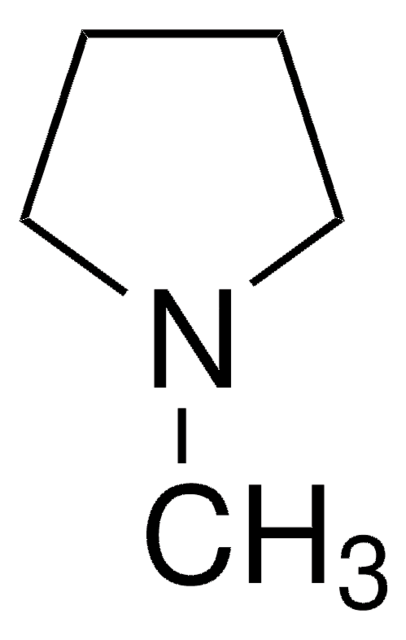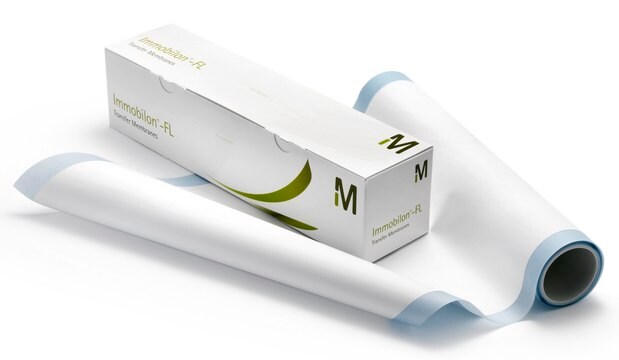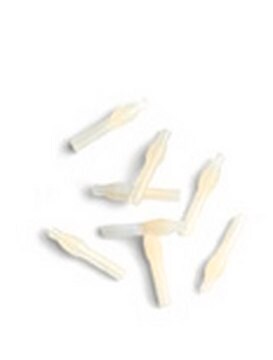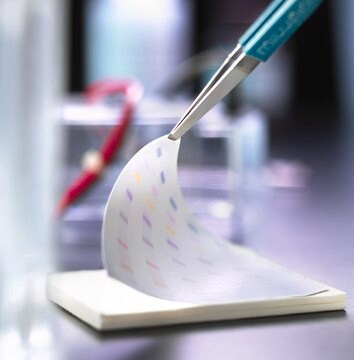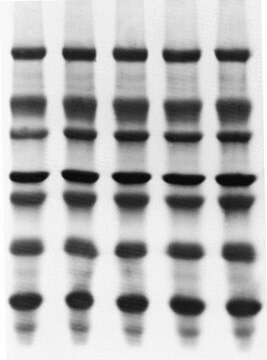P2938
Immobilon®-P Polyvinylidene difluoride membranes
size 26.5 cm × 375 cm
Synonym(s):
PVDF
Sign Into View Organizational & Contract Pricing
All Photos(1)
About This Item
UNSPSC Code:
41105339
NACRES:
NA.25
Recommended Products
Looking for similar products? Visit Product Comparison Guide
Application
Immobilon-P Polyvinylidene difluoride membrane has been used in western blotting for the transfer of proteins after sodium dodecyl sulfate–polyacrylamide gel electrophoresis (SDS-PAGE).
Polyvinylidene difluoride membranes are popular membranes for immunoblotting (Western blotting), and sequencing of proteins. The basis of protein binding to PVDF is believed to be due to hydrophobic interactions. PVDF membranes for Western blotting are available in the most commonly used 0.45 μm pore size. PVDF membranes have a greater protein binding capacity, are more durable and more solvent resistant than nitrocellulose.
Legal Information
Immobilon is a registered trademark of Merck KGaA, Darmstadt, Germany
Storage Class Code
11 - Combustible Solids
WGK
WGK 3
Flash Point(F)
Not applicable
Flash Point(C)
Not applicable
Personal Protective Equipment
dust mask type N95 (US), Eyeshields, Gloves
Certificates of Analysis (COA)
Search for Certificates of Analysis (COA) by entering the products Lot/Batch Number. Lot and Batch Numbers can be found on a product’s label following the words ‘Lot’ or ‘Batch’.
Already Own This Product?
Find documentation for the products that you have recently purchased in the Document Library.
Customers Also Viewed
Cross-phosphorylation between Arabidopsis thaliana sucrose nonfermenting 1-related protein kinase 1 (AtSnRK1) and its activating kinase (AtSnAK) determines their catalytic activities.
Crozet P, et al.
The Journal of Biological Chemistry, 285, 12071-12077 (2010)
Clare M Hamilton et al.
Infection and immunity, 77(6), 2488-2498 (2009-04-01)
Parasitic worms and molecules derived from them have powerful anti-inflammatory properties and are shown to have therapeutic effects on inflammatory diseases. The helminth Fasciola hepatica has been reported to suppress antigen-specific Th1 responses in concurrent bacterial infections, thus demonstrating its
Our team of scientists has experience in all areas of research including Life Science, Material Science, Chemical Synthesis, Chromatography, Analytical and many others.
Contact Technical Service





